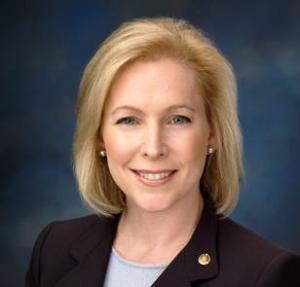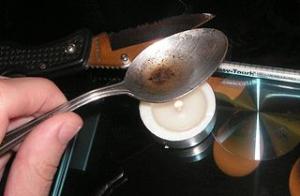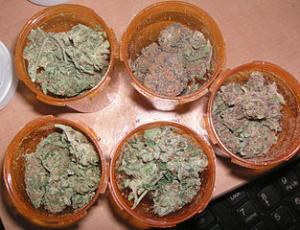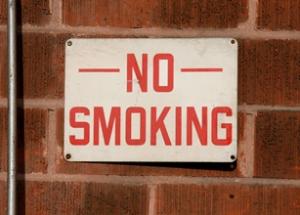New York's long-delayed medical marijuana program finally rolled out this month -- not with a bang, but with a whimper.
Members of Congress urge the VA to get out of the way on medical marijuana, the Marijuana Policy Project eyes an Ohio initiative this year, the California legislature is trying to fix a mess of its own making, and more.
A Minnesota deputy steals dope and Christmas toys, an Indiana deputy coroner peddles pills, and a Texas narcotics officer gets nailed trying to rip off drug cartels.
New Hampshire's governor signs a package of heroin and prescription opiate bills, a similar package goes to the desk of the Wisconsin governor, Illinois patients seek to add more qualifying conditions, South Dakota's GOP governor rejects a welfare drug testing bill, a key Mexican politician endorses pot legalization, and more.
Alaska's commercial marijuana regulations advance, so does a Kansas bill lowering pot penalties and a pair of Florida asset forfeiture reform bills, the Irish government ponders pill testing for nightclubs and festivals, a medical marijuana bill is filed in Mexico, and more.
State legislators are getting busy, the DC city council resorts to sneakery to try to kill pot clubs, federal legislators ask the VA to let doctors recommend medical marijuana for veterans, and more.
Busy, busy. State legislatures are in full swing, and the bills just keep coming. Meanwhile, Florida's medical marijuana initiative has qualified for the ballot, Vermont's governor endorses legalization, and more.
This article was produced in collaboration with AlterNet and first appeared here.
New York's long-delayed medical marijuana program finally rolled out this month, not with a bang, but with a whimper. What looks to be the country's tightest medical marijuana program has an extremely limited number of producers and retailers, a tiny number of eligible patients, a dearth of doctors, and forbids both smoking marijuana and using edibles.
For patients and advocates, the very limited arrival of medical marijuana in the Empire State is not the end point they hoped to achieve. Now, instead of resting on their laurels, they will have to continue to fight to make the program one that actually serves the needs of New Yorkers.
"It's a start," said the Drug Policy Alliance's Julie Netherland, until recently the deputy director of the group's New York Policy Office, where she was deeply involved in massaging the law through the legislature and past a reluctant governor. "It's the first time New Yorkers can legally purchase medical marijuana, and it's the result of the hard work of thousands of patients and family members across New York."
But, she was quick to grant, the program has some serious issues, immediate ones in the way the program has been rolled out and longer-term ones with the statute itself.
Here are seven ways New York's medical marijuana program falls short:
Not Enough Access to Doctors
Under the law, before doctors can recommend medical marijuana to patients, they must complete a $249 four-hour course on the drug and then register with the Health Department. As of Thursday, only 306 physicians had done so. Unlike neighboring New Jersey, the Health Department maintains no public registry of doctors certified to recommend medical marijuana, making it that much more difficult for potential patients to find doctors who might certify them to purchase it. So far, only 465 patients have been certified by the department to buy medical marijuana.
"This is the number one complaint of patients," said Netherland, sketching out an almost Kafkaesque process. "The Health Department is telling me if I'm a patient, I should go see my doctor and see if he participates in the program and if not, to encourage him to register," she said. "If the doctors says he's not going to register, then I'm supposed to ask him for a referral, but the doctor isn't going to know about any list of certified doctors to refer me to, and then it's incumbent on me to tell him. It's just another set of hoops for patients to jump through."
At least the Health Department has now agreed to make the list of certified physicians available to patients.
Not Enough Dispensaries
In a state of 20 million, only eight dispensaries opened January 7, and only another dozen are envisioned under the June 2014 medical marijuana law. Weedmaps lists only three for New York City -- one each in Manhattan, the Bronx, and Queens. By way of comparison, Los Angeles had 135 permitted dispensaries and probably three times as many actually operating.
New York is not only heavily populated, it's big. With only 20 dispensaries, large geographical swathes of the state will remain without access. Long Island, for instance, will have two dispensaries, but right now, it's a two-hour drive into the city.
"I'm disappointed that only eight dispensaries will open by the deadline," said Missy Miller from Atlantic Beach. "There are none opening on Long Island, which leaves my son Oliver, who suffers from life-threatening seizures, out of luck. This only highlights concerns we have had all along that the state has licensed way too few producers and dispensaries to serve a state as populous and geographically large as New York."
No Personal Cultivation
Unlike the majority of medical marijuana states, patients can't just grow their own. That means they are dependent on the dispensary system, with all its limitations.
Access Is Limited to Specified Qualifying Medical Conditions
The state law only allows medical marijuana for a list of specified medical conditions, including cancer, HIV/AIDS, Parkinson's disease, multiple sclerosis, and chronic pain. The law allows the Commissioner of Health to add other diseases and conditions, but just last week, he refused to add PTSD, Alzheimer's, muscular dystrophy, dystonia, rheumatoid arthritis.
"We're hearing every day from patients with all kinds of conditions," said Netherland. "The commissioner was directed by law to consider those five additional conditions, but he declined to add any. That was a huge blow to patients across the state hoping he would do the right thing. Half the medical marijuana states include PTSD; we thought there was strong scientific evidence to include it."
Limitations on Forms of IngestionThe law bans the sale of smokable marijuana. New York joins Minnesota as the only two medical marijuana states that ban smoking; 21 others do not. The state will only allow oils and capsules that can be administered orally, and liquid forms of marijuana may also be vaporized.
"The law prohibits any smoking, but regulations prohibit any access to the whole plant," said Netherland. "That means all the products will be extracts, oils, or tinctures. This is also an issue for a lot of our patients.
Limitations on Strains
The law only provides for five producers, and each producer can only grow five strains.
"We know there are dozens and dozens of therapeutic strains," said Netherland. "We'd like to have the flexibility to match symptoms with strains. One of the issues is that all of the products have to be approved by the Health Department."
Access for Limited Income Patients
Advocates sought unsuccessfully to get provisions to ensure access for low income patients. Medical marijuana is not covered by insurance, and could run between $200 and $1300 a month, depending on the product and the condition. Now it will be up to the charitable instincts of dispensaries.
"We had encouraged the state to create incentive programs for producers to have programs for low income access, and we also encouraged the state to set up a program itself. It chose to do neither," Netherland said. "Now, patients are basically waiting to see if dispensaries will step up."
"There's lots of room for improvement," she said. "We anticipated a lot of these problems when the law was passed, and we're looking at going back to the legislature. We'll be back in Albany in the coming months talking about the need to expand the program and make it work from the patient's standpoint."
It looks like there's plenty of work to be done.
back to top
Members of Congress urge the VA to get out of the way on medical marijuana, the Marijuana Policy Project eyes an Ohio initiative this year, Florida will vote on an initiative this year, California legislature is trying to fix a mess of its own making, and more.

MMJ leaf and stethoscope KY ODCP_151_61.jpg
On Wednesday, federal lawmakers called on the Veterans Administration to let doctors recommend medical marijuna to vets. Twenty-one members of Congress have written to Veterans Administration (VA) Secretary Robert McDonald urging him to allow VA doctors to discuss medical marijuana as a possible treatment in states where it is legal. A VA policy that does not allow doctors to recommend it expires at the end of this month, and the lawmakers are calling on McDonald to not extend it. "You are in a position to make this change when the current directive expires at the end of this month," Sen. Kirsten Gillibrand (D-NY), Sen. Steve Daines (D-MT), and others wrote Wednesday to McDonald. "We ask that you act to ensure that our veterans' access to care is not compromised and that doctors and patients are allowed to have honest discussions about treatment options."
On Thursday, Americans for Safe Access released a report on state medical marijuana programs. The patient advocacy group graded each state and graded toughhly. No state earned an "A" and only 12 earned a "B." Read the report here.
Arizona
On Monday, a GOP politician withdrew a bill that would have crippled the medical marijuana program. State Rep. Jay Lawrence (R-Fountain Hills) has withdrawn HCR 2019, which would have barred naturopaths and homeopaths from recommending medical marijuana. Nearly 90% of all recommendations in the state are written by those health care professionals. Lawrence said he withdrew his bill after his office "received so many calls" and he actually learned about how the program works.
California
On Monday, the Senate approved a bill to slow medical marijuana bans. The state Senate Monday approved Assembly Bill 21, designed to fix what lawmakers called a mistake in the state's comprehensive medical marijuana regulation laws. The bill had a paragraph that gave the state authority to license cultivation in localities that didn't have their own laws on the books by March 1, and many localities had responded by passing preemptive cultivation bans. The bill now goes to the Assembly.
On Wednesday, the Assembly approved the bill. After passing the Senate earlier this week, Assembly Bill 21, has now passed the Assembly and awaits a signature from Gov. Jerry Brown (D). The bill lifts a March 1 deadline for localities to regulate medical marijuana or lose control to the state. The deadline has prompted more than a hundred localtities to enact bans on various sorts in a bid to retain local control.
Florida
On Wednesday,the Florida medical marijuana initiative qualified for the ballot The group behind the effort, United for Care, said the Division of Elections has recorded 692,981 verified voter signatures, nearly 10,000 more than needed to qualify. A similar effort won 58% of the vote in 2014, but failed to pass because constitutional amendments require 60% of the vote to pass in Florida.
Georgia
Last Thursday, a state representative admitted breaking the law to help families obtain CBD cannabis oil. Rep. Alan Peake (R-Macon) admitted that he has been going to other states to obtain the medicine and bring it back for patients. Under a law he sponsored last year, CBD cannabis oil is legal for people for certain diseases, but there is no provision for in-state cultivation or sales. "We made sure that families properly registered with the state got access to medical cannabis, including delivering it to them if that's the only way we can make that happen," Peake said. "Maybe at some point there is a need for civil disobedience. It comes down to, 'What would I do if it were my child?'" Peake said.
Hawaii
On Monday, a bill to ban patients from growing their own was filed. Now that dispensaries are set to open up in the state, Rep. Marcus Oshiro (D-Oahu) has filed a bill that would prohibit patients from growing their own, instead requiring them to use the dispensaries. The bill is House Bill 1680. Patient groups don't like it.
Illinois
This week, a petition is seeking to prod the governor to expand qualifying medical conditions. The state Medical Cannabis Advisory Board has recommended adding eight new qualifying conditions to the state's medical marijuana program. The petition is directed at Gov. Bruce Rauner (R) and the head of the state Department of Public Health, who will make the final decision. The petition currently has more than 19,000 signatures and has been endorsed by Melissa Etheridge.
Indiana
Last Thursday, medical marijuana bills were pronounced dead. State Sen. Jean Leising (R-Oldenburg) said Thursday that medical marijuana bills in the state legislature would not got a hearing this year. "They are all dead," she said. "There just isn't the appetite in the Senate for approving any kind of medical marijuana, not with the current makeup of the (50-member) Senate. You need 26 votes, and they're just not there." Parents of children suffering from epilepsy had pleaded with lawmakers to act, to no avail.
Ohio
Last Wednesday, the Marijuana Policy Project announced plans for Ohio. MPP said Wednesday it plans to put a medical marijuana initiative on the 2016 ballot. The initiative would take the form of a constitutional amendment, but has not yet been drafted.
Last Friday, the attorney general rejected the wording on a medical marijuana initiative. State Attorney General Mike DeWine (R) has rejected a third petition for a medical marijuana constitutional amendment. He said there were five discrepancies between the language of the proposal and its summary language.
Utah
Last Wednesday, a "whole plant" medical marijuana bill was filed. Sen. Mark Madsen (R-Saratoga Springs) has introduced Senate Bill 73, which would create a full-fledged medical marijuana system in the state. The bill would only allow marijuana to be consumed in the forms of oils and gummies, not smoked. Another bill already filed would allow only cannabidiol.
Last Thursday, the Republican governor signaled support for medical marijuana. Gov. Bob Herbert (R) said Thursday that he is not familiar with two medical marijuana bills filed this session and that he doesn't want a "Dr. Feelgood" situation, but "if there's a medicine out there that will alleviate pain and conditions and health concerns for people, if there's a medicine out there that can do that, we ought to see if we can embrace it." He added that he would prefer that Congress legalize it federally rather than leaving it up to the states to act.
[For extensive information about the medical marijuana debate, presented in a neutral format, visit MedicalMarijuana.ProCon.org.]
back to top
A Minnesota deputy steals dope and Christmas toys, an Indiana deputy coroner peddles pills, and a Texas narcotics officer gets nailed trying to rip off drug cartels. Let's get to it:

pile-of-cash_180_57.jpg
In LaPorte, Indiana, a LaPorte County deputy coroner pleaded guilty last Friday to peddling prescription opiates. Dawn Maxson, 47, copped to dealing in Schedule I and Schedule III controlled substances, and is looking at up to 12 years in prison when sentenced. She was busted in October selling 70 hydrocodone pills for $500 in a K-Mart parking lot and had originally faced seven counts of selling pills. She got the drugs through a legitimate prescription, but only used some of them and sold the rest.
In McAllen, Texas, a former Starr County narcotics officer was sentenced last Friday to seven years in prison for his role in a conspiracy that involved ripping off drugs from drug cartels. Noel Pena, 30, was a Rio Grande City police officer assigned to the Starr County High Intensity Drug Trafficking Area (HIDTA) task force when he agreed to provide a faked police report to an undercover agent posing as a drug trafficker who was looking for help in stealing a drug shipment. The fake report would make it appear that cocaine had been seized by the HIDTA, when it was actually to be ripped off. Pena was originally charged with two counts of conspiracy to possess with intent to distribute more than five kilograms of cocaine, but pleaded guilty to a single count in return for a lighter sentence.
back to top
New Hampshire's governor signs a package of heroin and prescription opiate bills, a similar package goes to the desk of the Wisconsin governor, Illinois patients seek to add more qualifying conditions, South Dakota's GOP governor rejects a welfare drug testing bill, a key Mexican politician endorses pot legalization, and more.
Marijuana PolicyStudent Marijuana Group Wins Free Speech Lawsuit Against Iowa State University. A federal judge last Friday ruled that ISU administrators violated the First Amendment rights of ISU NORML by barring the group from using ISU logos on its t-shirts. ISU NORML won a permanent injunction against the university preventing it from using its trademark policy to block the group from printing shirts depicting a marijuana leaf.
Denver Social Pot Club Effort Gains New Life. A shelved ballot measure that aims at winning approval for marijuana use at some private businesses is being brought back to life by a newly formed NORML chapter. Denver NORML says it is going to take up where advocates left off. Advocates from the Vicente Sederberg law firm and the Marijuana Policy Project had begun such a ballot effort last year, but withdrew and is now seeking a potential compromise ordinance with city officials and other interested parties. But Denver NORML says it time to "get this done."
Medical Marijuana
Arizona GOP Rep Withdraws Bill to Cripple Medical Marijuana Program. State Rep. Jay Lawrence (R-Fountain Hills) has withdrawn HCR 2019, which would have barred naturopaths and homeopaths from recommending medical marijuana. Nearly 90% of all recommendations in the state are written by those health care professionals. Lawrence said he withdrew his bill after his office "received so many calls" and he actually learned about how the program works.
Georgia Lawmaker Admits Breaking State Law to Help Families Obtain CBD Cannabis Oil. Rep. Alan Peake (R-Macon) admitted last week that he has been going to other states to obtain the medicine and bring it back for patients. Under a law he sponsored last year, CBD cannabis oil is legal for people for certain diseases, but there is no provision for in-state cultivation or sales. "We made sure that families properly registered with the state got access to medical cannabis, including delivering it to them if that's the only way we can make that happen," Peake said. "Maybe at some point there is a need for civil disobedience. It comes down to, 'What would I do if it were my child?'" Peake said.
Hawaii Bill Would Bar Patients From Growing Their Own. Now that dispensaries are set to open up in the state, Rep. Marcus Oshiro (D-Oahu) has filed a bill that would prohibit patients from growing their own, instead requiring them to use the dispensaries. The bill is House Bill 1680. Patient groups don't like it.
Illlinois Petition Seeks to Prod Governor to Expand Qualifying Medical Conditions. The state Medical Cannabis Advisory Board has recommended adding eight new qualifying conditions to the state's medical marijuana program. The petition is directed at Gov. Bruce Rauner (R) and the head of the state Department of Public Health, who will make the final decision. The petition currently has more than 19,000 and has been endorsed by Melissa Etheridge.
Ohio Attorney General Rejects Wording on Medical Marijuana Initiative. State Attorney General Mike DeWine (R) has rejected a third petition for a medical marijuana constitutional amendment. He said there were five discrepancies between the language of the proposal and its summary language.
Heroin
New Hampshire Governor Signs Heroin Bills. Gov. Maggie Hassan (D) has signed into law two bills, Senate Bill 447 and Senate Bill 576 that were part of a comprehensive proposal to deal with heroin and opiate addiction she put forth last fall. The former bill creates a study commission on using naloxone more broadly, while the second increases penalties for the sale of fentanyl, requires insurance companies to use similar evaluation criteria to streamline access to drug treatment, and strengthening the state's prescription monitoring program.
Wisconsin Legislature Approves Package of Prescription Monitoring Bills. The state Senate last week gave final approval to the package, which is aimed at reducing heroin use by requiring pharmacists to register prescriptions within 24 hours and requiring police to register prescription drugs found at the scene of an overdose. The package now goes to Gov. Scott Walker (R) for his signature.
New Psychoactive Substances
Massachusetts Bill Would Criminalize More Than a Dozen New Synthetic Drugs. State Rep. Tim Whelan (R-Brewster) has cosponsored a bill that would specifically target 19 new psychoactive substances listed as controlled substances by the DEA. The possession, manufacture, and distribution of the drugs would be criminalized under the bill.
Drug Testing
South Dakota Governor Rejects Welfare Drug Testing. Gov. Dennis Daugaard (R) is not supporting a recently filed bill to require suspicionless drug testing of welfare recipients. He said he had not been enthusiastic about similar bills in the past, that the effort was a waste of money, and it is "somewhat insulting."
International
Israeli Likudnik MK Filed Marijuana Decriminalization Bill. Member of the Knesset Sharren Haskel (Likud) has filed a bill to decriminalize pot possession. Such bills usually come from the left of the Israeli political spectrum. "More than a million Israelis occasionally consume cannabis, and the population that uses it is mostly not a criminal population," wrote Haskel. "These are normative people from all parts of society -- academics, public representatives, and others, who consume cannabis in their leisure time."
Key Mexican Lawmaker Calls for Marijuana Legalization, Medical Access. The president of Mexico's chamber of deputies, Jesus Zambrano, is calling for both medical and recreational marijuana use to be legalized. "The topic has its international component and efforts need to be combined, particularly between the United States and Mexico, to have common rules, laws that are essentially identical, though each with its own modalities, because we are distinct, but the United States must help our country apply, for instance, legalization of marijuana for medical and recreational use," said Zambrano. His was the opening salvo in a national debate on the topic that began Sunday.
back to top
Alaska's commercial marijuana regulations advance, so does a Kansas bill lowering pot penalties and a pair of Florida asset forfeiture reform bills, the Irish government ponders pill testing for nightclubs and festivals, a medical marijuana bill is filed in Mexico, and more.

Hillary Clinton reiterates support for state-level legalization without federal interference. (state.gov)
Hillary Clinton Reiterates Support for Letting States Legalize Marijuana. In an interview Monday, the Democratic presidential contender restated her position that the federal government shouldn't interfere with state-level legalization. "I think that states are the laboratories of democracy, and four states have already taken action to legalize, and it will be important that other states and the federal government take account of how that's being done, what we learn from what they're doing,"said Clinton. "I think that the states moving forward is appropriate and I think the federal government has to move to make this more available for research that they can then distribute to interested people across our country."
Alaska Legal Marijuana Rules Advance, With Two Exceptions. The Marijuana Control Board's rules and regulations for commercial marijuana activity have been approved by the state Law Department, with two exceptions. The Law Department struck down a requirement for a national criminal history check, saying that authority must come from statute, not regulations, and it struck down marijuana testing requirements for rural growers. The Law Department said the Board's allowance of "alternative means of testing" for rural growers lacks standards. The Board said the legislature is already working on a fix for the background checks, but it doesn't yet have a fix for the rural grower issue.
Kansas Senate Panel Okays Lessening Pot Penalties, Legalizing CBC Cannabis Oil. The Senate Corrections and Juvenile Justice Committee Tuesday approved bills lessening marijuana possession penalties and allowing for the use of CBD cannabis oil for people with epilepsy. The bills now head for the Senate floor.
Virginia Decriminalization Bills Killed By House Committee. The House Courts of Justice Committee's Subcommittee on Criminal Law Monday voted down a pair of bills that would decriminalize marijuana possession in the Commonwealth.
New Orleans Ordinance Would Give Police Discretion to Ticket Marijuana Possessors. Currently, only first-time pot possession offenders are eligible for a summons instead of an arrest, but Councilwoman Susan Guidry is offering a measure that would allow police to only ticket pot possessors no many how many offenses they had. The measure is on the council's agenda today.
Medical Marijuana
California Senate Approves Bill to Slow Medical Marijuana Bans. The state Senate Monday approved Assembly Bill 21, designed to fix what lawmakers called a mistake in the state's comprehensive medical marijuana regulation laws. The bill had a paragraph that gave the state authority to license cultivation in localities that didn't have their own laws on the books by March 1, and many localities had responded by passing preemptive cultivation bans. The bill now goes to the Assembly.
Asset Forfeiture
Florida Asset Forfeiture Reform Bills Win Committee Vote. Two competing reform bills passed a Senate panel Tuesday. A bill from Sen. Aaron Bean (R-Fernandina Beach) would leave civil asset forfeiture intact, but increase oversight, while a bill from Sen. Jeff Brandes (R-St. Petersburg) would require a criminal conviction before seizure of assets. Law enforcement supports the first bill, but not the second. The committee passed both measures.
Drug Policy
Poll: New Hampshire Voters Support Drug Decriminalization. Two-thirds of state voters supported not arresting small-time drug possessors, but instead offering them counseling and treatment. And nearly three-quarters (73%) supporting doing away with mandatory minimum sentences for drug possession offenses.
International
Ireland Considering Pill Testing for Nightclubs, Festivals. In the wake of the drug-related death of a teenage clubber last week, Health Minister Leo Varadkar said the government is considering allowing pill testing kits for music venues. But he said that prevention is the first pillar in the department's approach to the problem.
Mexico Medical Marijuana Bill Coming. A senator from the Institutional Revolutionary Party (PRI) has proposed a bill to legalize medical marijuana and says she thinks it can pass by May. Sen. Cristina Diaz said she hoped the national debate on marijuana, which began this week, would help the bill progress.
(This article was prepared by StoptheDrugWar.org's lobbying arm, the Drug Reform Coordination Network, which also pays the cost of maintaining this web site. DRCNet Foundation takes no positions on candidates for public office, in compliance with section 501(c)(3) of the Internal Revenue Code, and does not pay for reporting that could be interpreted or misinterpreted as doing so.)
back to top
State legislators are getting busy, the DC city council resorts to sneakery to try to kill pot clubs, federal representatives ask the VA to let doctors recommend medical marijuana for veterans, and more.

Sen. Kirsten Gillibrand (D-NY) was among those calling on the VA to let doctors recommend medical marijuana for veterans.
Arizonans Rally to Support Legalization Bill. Marijuana reform advocates rallied at the state capitol Wednesday to support a bill that would legalize marijuana. Carrying signs that red "Cannabis Reduces Opiate Overdose" and "Cannabis is a Natural Alternative to Harmful Pharma," the ralliers urged passage of House Bill 2006, introduced by Rep. Mark Cardenas (D).
Vermont Legalization Bill Sees Tussles Ahead of Vote Tomorrow. The powerful chairman of the Senate Judiciary Committee, Sen. Dick Sears (D-Burlington) has said he won't vote for his own committee's legalization bill if it allows for home cultivation, and he's also asking the committee to make additional changes, including moving some of the tax proceeds to the general fund and increasing penalties for adults who sell pot to minors. The measure is Senate Bill 137.
Washington State Bill Would Allow Home Cultivation. A bill to allow for home cultivation of up to six plants has been introduced with bipartisan support in the legislature. Washington's version of legalization does not allow for home cultivation, but House Bill 2629 would change that, bringing Washington in line with other legalization states.
In Sneak Move, DC Council Moves to Ban Pot Social Clubs. With the public notified only moments before markup, the DC Council's Committee on the Judiciary voted today to permanently ban marijuana consumption in private clubs. A temporary ban was set to expire April 15, and advocates had hoped the Council would let it lapse. The bill approved by the committee bars entities from providing adults with private spaces other than a residence to consume marijuana, and requires the Mayor's office to revoke a business' license after only one instance of a patron consuming marijuana on the premises.
Medical Marijuana
Lawmakers Call on VA to Let Doctors Recommend Medical Marijuana. Twenty-one members of Congress have written to VA Secretary Robert McDonald urging him to allow VA doctors to discuss medical marijuana as a possible treatment in states where it is legal. A VA policy that does not allow doctors to recommend it expires at the end of this month, and the lawmakers are calling on McDonald to not extend it. "You are in a position to make this change when the current directive expires at the end of this month," Sen. Kirsten Gillibrand (D-NY), Sen. Steve Daines (D-MT), and others wrote Wednesday to McDonald. "We ask that you act to ensure that our veterans' access to care is not compromised and that doctors and patients are allowed to have honest discussions about treatment options."
Industrial Hemp
Hawaii Industrial Hemp Production Bill Filed. Reps. Kaniela Ing (D-South Maui) and Cynthia Thielen (R-Oahu) have introduced House Bill 2555, which would allow for industrial hemp production for research purposes. The bill is backed by the state Department of Agriculture.
Asset Forfeiture
Wisconsin Asset Forfeiture Reform Bill Gets Committee Hearing. The Senate Committee on Labor and Government Reform Tuesday took up Senate Bill 521, which would end civil asset forfeiture in the state. Speaking in support were the Wisconsin ACLU and the Wisconsin Grandsons of Liberty; speaking against were -- you guessed it -- representatives of law enforcement. No vote was taken.
Drug Testing
Virginia Welfare Drug Testing Bills Killed. The Health, Welfare and Institutions Subcommittee #1 narrowly defeated a combined pair of bills, House Bill 468 and House Bill 86, that would have required welfare applicants to undergo drug tests before receiving benefits. "VIEW recipients are no more likely statistically to be drug users than any other group and to target them would be unfair," Del. Marcia Price (D-Newport News) said. "I am proud to have agreed with my colleagues across the aisle that there was a lack of evidence to warrant this practice. We would be better served, instead of this practice, to continue to invest money into the tangible obstacles to employment. Rightly, partisan politics did not stand in the way of doing what is right for our Commonwealth."
Sentencing
Maine Bill to More Harshly Punish Outsiders Bringing Drugs to State Gets Hearing. The legislature's Criminal Justice Committee heard conflicting testimony Monday on LD 1541, which creates the crime of "aggravated importation of scheduled drugs." The bill doesn't specify, but the measure is clearly aimed at heroin traffickers bringing the drug into the state. Not everyone was gung-ho, though: Tougher sentences are "just not the most effective tool against this scourge," said John Pelletier, a member of the Maine Criminal Advisory Commission. The measure would double prison sentences for importing heroin into the state from five to 10 years, and up to 30 years in some cases.
International
Mexico's National Marijuana Legalization Debate is Underway. Lawmakers met in Cancun Tuesday to open the first batch of debates on marijuana legalization. President Enrique Pena Nieto is opposed, but called for national debate after court rulings appeared to open cracks in the country's prohibition.
back to top
Busy, busy. State legislatures are in full swing, and the bills just keep coming. Meanwhile, Florida's medical marijuana initiative has qualified for the ballot, Vermont's governor endorses legalization, and more.

Heroin is on the agenda at statehouses this week. (wikimedia.org)
Federal Judge Throws Out Lawsuit Against Colorado's Legalization. A Colorado US District Court judge has rejected a lawsuit challenging the legality of marijuana legalization in the state. The lawsuit was filed by a Washington, DC-based anti-marijuana group, the Safe Streets Alliance, and asked the court to find the state and Pueblo County guilty of violating the Racketeer Influenced and Corrupt Organizations (RICO) Act. The judge in the case rejected the claims, concluding that private parties have no standing to seek recourse for alleged violations of the Supremacy Clause, which makes federal law the supreme law of the land. Another lawsuit, filed by the states of Nebraska and Oklahoma, is still being decided.
New Mexico Poll Finds Strong Support for Legalization. Three out five (61%) adult New Mexicans support legalizing and regulating marijuana, according to a new poll from Research & Polling. The poll comes as the legislature ponders two bills, one that would amend the state constitution to let voters decide the issue, and one that is a straightforward legalization bill. The bills are Senate Joint Resolution 5 and House Bill 75, respectively.
Vermont Governor Endorses Legalization Bill. Gov. Peter Shumlin has endorsed the Senate Judiciary Committee's legalization bill, Senate Bill 137. "The War on Drugs has failed when it comes to marijuana prohibition," Gov. Shumlin said. "Under the status quo, marijuana use is widespread, Vermonters have little difficulty procuring it for personal use, and the shadows of prohibition make it nearly impossible to address key issues like prevention, keeping marijuana out of the hands of minors, and dealing with those driving under the influence who are already on Vermont's roads. The system has failed. The question for us is how do we deal with that failure. Vermont can take a smarter approach that regulates marijuana in a thoughtful way, and this bill provides a framework for us to do that."
DC Poll Finds Residents Want District to Move Ahead With Regulation -- Despite Congress. A substantial majority of District residents believe Mayor Bowser should move forward with taxation and regulation of marijuana despite Congressional prohibition, according to a survey conducted over the weekend by Public Policy Polling (PPP) for the Drug Policy Alliance, DC Vote, DC Working Families and the Washington City Paper. Two-thirds (66%) of respondents believe the mayor should pursue a legal method (such as use of reserve funds) to implement taxation and regulation of marijuana in the District. In light of congressional interference attempting to prevent such regulation, 63% of residents view marijuana legalization as a statehood issue for the District.
Medical Marijuana
Americans for Safe Access Releases Report on State Medical Marijuana Programs. The patient advocacy group graded each state and graded harshly. No state earned an "A" and only 12 earned a "B." Read the report here.
California Bill to Halt Medical Marijuana Bans Heads to Governor's Desk. After passing the Senate earlier this week, Assembly Bill 21, has now passed the Assembly and awaits a signature from Gov. Jerry Brown (D). The bill lifts a March 1 deadline for localities to regulate medical marijuana or lose control to the state. The deadline has prompted more than a hundred localtities to enact bans on various sorts in a bid to retain local control.
Florida Medical Marijuana Initiative Qualifies for the November Ballot. The group behind the effort, United for Care, said Wednesday the Division of Elections has recorded 692,981 verified voter signatures, nearly 10,000 more than needed to qualify. A similar effort won 58% of the vote in 2014, but failed to pass because constitutional amendments require 60% of the vote to pass in Florida.
Heroin and Prescription Opiates
Injection Drug Use Driving Appalachian Hepatitis B Infections. The Centers for Disease Control and Prevention report that acute Hepatitis B was up 114% in Kentucky, Tennessee, and West Virginia between 2009 and 2013. The report found that injection drug was tied to 75% of the new cases. Unlike Hep C, Hep B can be prevented with a vaccine, but vaccine coverage is low among adults nationwide.
Maine Governor Wants Gunowners to Shoot Drug Dealers. Just days after saying Maine should revive the guillotine to execute drug dealers, Gov. Paul LePage suggested just shooting them instead. "I tell ya, everybody in Maine, we have constitutional carry," LePage said in an on-camera interview in Lewiston. "Load up and get rid of the drug dealers. Because, folks, they're killing our kids," the governor said. He then denied that he was encouraging vigilantism.
New York Assembly Minority Task Force Releases Report on Heroin Addiction. The task force has come out with suggestions for combating heroin and opiate addiction. The recommendations include earlier drug education, involuntary "emergency medical" detention of addicts, and a felony "death by dealer" statute. Now, the task force must work with Assembly Democrats to create legislation.
Drug Testing
South Dakota Welfare Drug Testing Bill Killed in Committee. The Health and Human Services voted to kill a bill that would have required welfare applicants to undergo mandatory, suspicionless drug testing. Even the Republican governor had opposed the bill.
International
Producers of Prohibited Plants Issue Declaration Ahead of UNGASS. The Global Forum of Producers of Prohibited Plants (coca, opium, marijuana) is demanding that growers be heard at the UN General Assembly Special Session on Drugs in April. In a joint declaration from producers in 14 countries, the group urged an end to forced eradication of drug crops, the removal of the three plants from international drug control treaties, and sustainable rural economic development. Click the title link for a full list of participants and recommendations.
back to top






